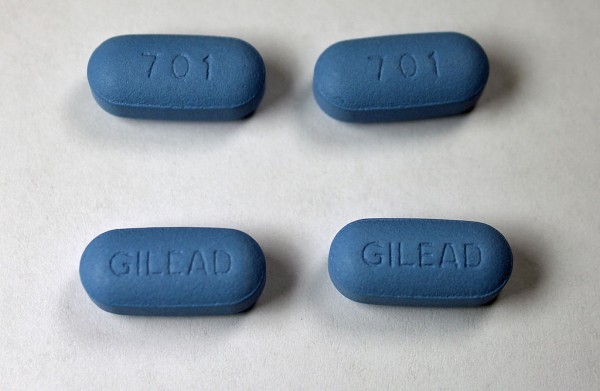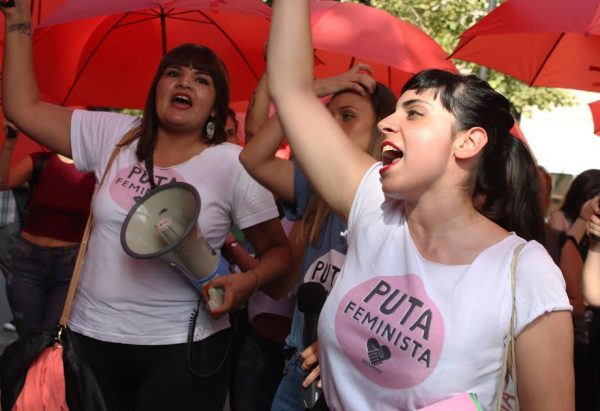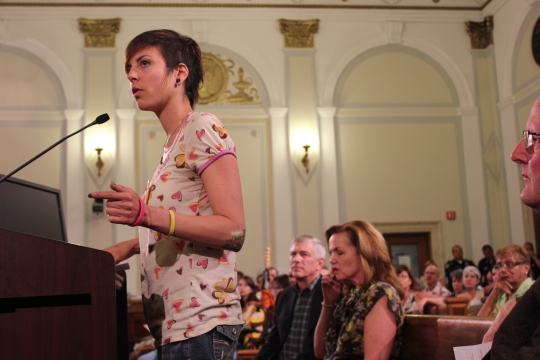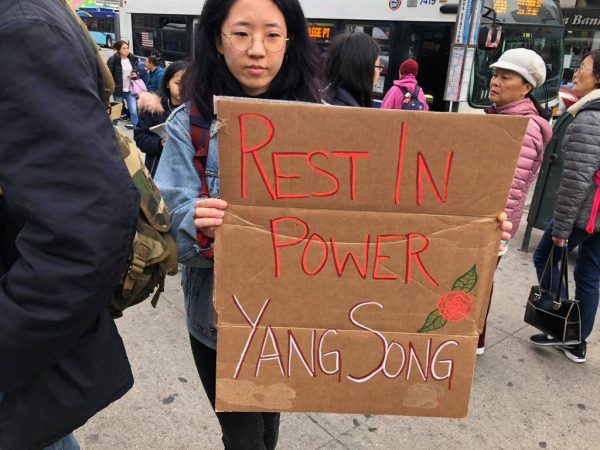Nothing Scarier Than A Black Trans Woman With A Degree: An Interview With Monica Jones

In May 2013, sex worker and trans rights activist and Arizona State University social work student Monica Jones was charged with “manifestation of prostitution” in Phoenix after accepting a ride from an undercover cop. Her arrest ignited a firestorm of protest against Project ROSE, a prostitution arrest diversion program run by the ASU School of Social Work and the Phoenix police that utilized arrest sweeps; transphobia in those prostitution arrests; and the potentially unconstitutional “manifestation of prostitution” statute under which she was prosecuted. The ACLU, SWOP-Phoenix, and other sex work and GLBT activists stood in solidarity with Jones as she gained international attention speaking out against her charges.
“The reason why this law [the manifestation of prostitution statute] is so unjust is because it gives the police the credibility to say who’s a sex worker, who’s not a sex worker…it violates our [our First Amendment rights]—just to walk down the street, our freedom of speech,” Jones explained to us. Since her arrest, Jones has gained prominence as an eminent activist, been interviewed by dozens of media outlets, met Laverne Cox, and traveled to Australia for public speaking engagements and study, all while working towards finishing her social work degree.
In November, Jones told Best Practices Policy Project that Project ROSE had been shut down, a crucial victory for the movement in Arizona. And though Jones was initially convicted, her January 2014 appeal was successful and the conviction was vacated. We spoke with her just before the announcement was made; below is a condensed and edited version of our interview, originally conducted via video chat.
Recently, your conviction was vacated. What does that mean for you? What’s next?
I got a call from the court yesterday evening saying that the prosecutors are not going to retry me. So right now we’re looking to see if it’s with prejudice or without prejudice and will it still have an effect on me challenging the constitutionality of the law.
So your ultimate goal with your legal team is to use the case to overturn the law altogether. How can people from other states help fight the law; help fight your campaign against it?
I think there’s a lot more laws like this across this country—like “loitering with intent of prostitution,” and condoms as evidence. I think that they need to take on their own fights in their own homes and their own cities. Because when we get rid of these laws it basically gets rid of sexism and discrimination and transphobia. And it takes the power away from the cops and the justice system to say who is sex working and who’s not sex working.
A story that brought you to the news in the last few months was your deportation from Australia at the Sydney Airport. From what I read, during your encounter with immigration you were pressured by the producers of the reality show Border Security to have your case filmed. When you refused after initially agreeing, after you realized they planned to sensationalize your story, customs officials began to treat you much more harshly. Can you tell us more about what happened there?
So what happened was I was legally constrained to come back to my appeals. I was doing my internship in Australia, with Scarlet Alliance, a great sex worker organization there, and I was leaving there to come back for my case and I was traveling back to Australia in three days. So when I got to the airport to leave to come to the U.S., they went through all my stuff. They went through my purse, they went through my phone, they went through my suitcase, they went through everything. I had everything about my court case in there in the folder. They went in a back room and went through that. They said, “Okay, you’re good to go.” So I was thinking, okay, I’m good to go.
And when I came back from the U.S., they had pulled me to the side and took me into this room, where I was proceeded to be asked, “Do you want to be filmed by this camera crew?” And the producer of the show said, “We think that your story is interesting.” Which, I’d never told them anything about my story—they know nothing about my story! And so I’m thinking, how do they know my story is interesting? So they kept on asking me questions.
After being pressured I agreed to be filmed. But during the middle of it, I said, “I don’t feel right with this, I think this is suspicious.” And once I did that they were very harsh against me—”Oh, you were doing this, you violated your visa…”
If I violated my visa, you guys should have let me know when you guys originally checked me on my way out of the country! The judge later asked [the immigration officials],” Why were you checking her on her way out of the country?” So they said I was a threat to national security. So I guess activism is a threat to Australia’s security.



